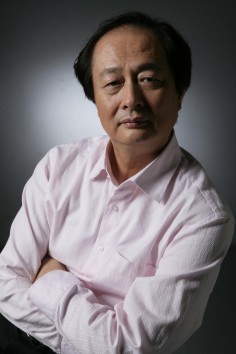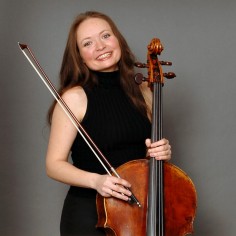My true colours
While he's widely known for his film scores, composer Zhao Jiping says his orchestral works better reflect his emotions, writes Xu Donghuan

"Film scores tend to travel fast and reach millions of households overnight. But they are attached to films and are subject to conditions. Orchestra music is a complete set of work in its own," says Zhao.
He will conduct five of his concertos with the Hong Kong Chinese Orchestra (HKCO) in a concert on May 10. Representing his major works over the past three decades, the programme includes his early orchestral pieces, and guanzi concerto as well as his recent works, (which premiered here in Hong Kong in 2008 by Yo-Yo Ma) and featuring violin, guqin and soprano.
Guest soloists include Belgian cellist Marie Hallynck, multi-award-winning violinist Chai Liang, renowned guqin master Zhao Jiazhen, French saxophonist Christine Wirth, erhu player Zhang Zongxue and Zhao's wife, soprano Zhang Ningjia from Xian Conservatory of Music.
Zhao, who began his collaboration with the HKCO in the 1990s, thinks highly of the orchestra's interpretation of his works. "Hong Kong Chinese Orchestra is the best among all the orchestras specialising in Chinese music. Its rehearsals, concert themes to music seasons are all up to a high standard," he says.
Last year, in the HKCO concert "Farewell, Snow in Summer and in the Thoughts", Zhao's poignant piece for his first wife Sun Ling, who died of cancer in 2002, touched many in the audience.
Based in Xian, Shaanxi province, Zhao is from a family of artists. His father, Zhao Wangyun, was a Chinese ink painting master famous for his depiction of rural lives in the 1930s and 1940s.
I believe great composers are never produced in classrooms
"His aesthetic taste and visual interpretation are a great influence on me. His paintings along the Silk Road and especially those on the Dunhuang grottoes gave rise to my imagination of the mysterious place when I was quite young," Zhao recalls.
Besides paintings, his father's passion for folk operas also had an impact on him. In fact, the artistic atmosphere in the family influenced not only Zhao but also his five brothers, all of whom went on to build successful careers as musicians and painters.
However, the lives of Zhao brothers took a sudden change in 1957 when their father was branded a "rightist". "It was depressing to see big posters denouncing our father everywhere in the city. But unlike some people who denounced their family members, every member in our family comforted our father every night when he returned from public denunciation gatherings," Zhao recalls.
A few months later, the family's misfortune descended on 12-year-old Zhao, who was refused entry to the high school affiliated with Xian Conservatory of Music. But every cloud has a silver lining. At the local school that he attended for students who were not specialised in music, Zhao met a rightist teacher who formerly had been a psychology lecturer at university. He introduced Zhao to music composition and encouraged him to follow his music dream.
Three years later, when the political climate became less intense, Zhao was accepted by the high school affiliated with the music conservatory as a senior student. But the status of having a rightist father was still in place. He remembers that one time when all the students in the school went to greet the visiting Cambodian King Norodom Sihanouk, Zhao was not allowed to leave the classroom with teachers guarding the door. "This kind of thing hurt me a lot. But I always turned them into the will to work harder in my music studies as my father had told me," he says. In 1964, when the music composition department at Xian Conservatory of Music stopped enrolling new students after a national call to attune music teaching to traditional Chinese music, Zhao was accepted by the folk music department to specialise in erhu. One year later, he was, finally, transferred to the music composition department.

In 1970, against his wish to join an orchestra or an opera house, Zhao was assigned a job at Shaanxi Folk Theatre Research Institute. He consulted his father who had been sent to labour on a cotton farm and Zhao senior told him the research institute was the right place for him. In the next eight years, Zhao consulted folk art scholars at the institute and mixed with folk artists during his research trips to the country, storing a reservoir of music resources for his future works.
This was followed by a two-year continuing education programme at the Central Conservatory of Music in Beijing.
His first big break came in 1984 when he wrote the music for , the debut feature by celebrated director Chen Kaige. So four years later, when another fifth-generation director, Zhang Yimou, made , Zhao was the first choice. The film score won a Golden Rooster award for that year. In the years that followed, Zhao produced music for various award-winning films and garnered all the top film score awards on the mainland, making him one of the most prominent film composers in the country.
"My secret is I always get involved early in the film production so my music will relate well to the film," he says. His orchestral works, which are characterised by combining traditional Chinese melodic and harmonic gestures with Western orchestral colours, have been equally impressive.
In 2008, he was appointed president of Xian Conservatory of Music, his alma mater. The following year, he was named chairman of Chinese Musicians' Association, the mainland's largest and most important music association. But he says the focus of his work is still music composition. Late last year, , his most recent work, was premiered by Wu Man, the world's premier pipa virtuoso, with the Sydney Symphony Orchestra.
Overflowing with rich Chinese flavour, Zhao's music has won rave reviews from critics home and abroad.
"I have always used a musical language that is my mother tongue and resonates closely to my heart for my music composition. That's the key to make one's music stand out on the world stage," says Zhao.
